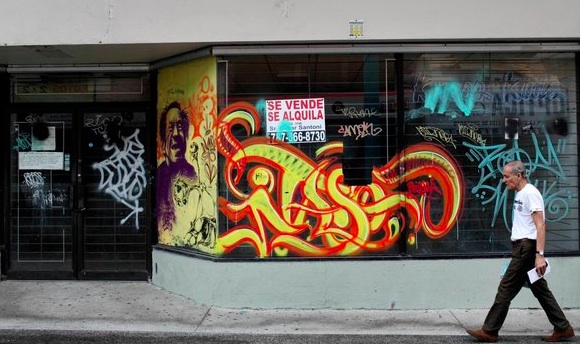Michelle Kaske writes: Puerto Rico and its agencies have amassed $72 billion of debt as the junk-rated island’s economy has shrunk every year but one since 2006. Investors bought the securities, which are tax-exempt in all U.S. states, for their relatively higher yields. There are fewer residents to help repay the obligations: The island’s population has declined 7 percent in the past decade as residents moved to the U.S. mainland.That combination of rising debt, sluggish economy, and falling population has pushed yields on Puerto Rico debt above those of Greece. The securities have been trading at distressed levels for nearly two years as investors doubted the commonwealth’s ability to repay its debt on time and in full. Puerto Rico warned in its latest quarterly filing that it may place a moratorium on debt payments in fiscal year 2016 if the government can’t cut spending or raise enough revenue.
Winner: Law Firms
Unlike Detroit, Puerto Rico and its agencies can’t file for Chapter 9 bankruptcy protection. Without a clear legal blueprint, the process of guiding the island and its creditors through a workout agreement will take more time and legal wrangling. That means lawyers for all the different parties—bond holders, banks, bond insurance companies, and government entities—will probably have to rack up lots of billable hours as they seek the best outcome for their clients.
Winner: Hedge Funds and Distressed-Debt Buyers
For nearly two years, hedge funds and investors in riskier debt have been purchasing Puerto Rico securities at distressed levels. Meanwhile, traditional tax-exempt investors such as municipal mutual funds have reduced or eliminated exposure to the island.
A group of 35 hedge funds, led by Fir Tree Partners and others, holds $4.5 billion of Puerto Rico debt. Firms that bought at a discount may make a profit on Puerto Rico entities that can either avoid a default or that offer recover rates higher than what the hedge funds originally paid to own the bonds.
Governor Alejandro Garcia Padilla and legislative leaders last week agreed on a proposal to cut at least $500 million of spending—following prior year reductions—and boosted the sales tax to 11.5 percent, from 7 percent. To lower the commonwealth’s payroll, the governor has cut 12,500 jobs payable from the general fund, a 12 percent drop. Puerto RIco’s Debt

